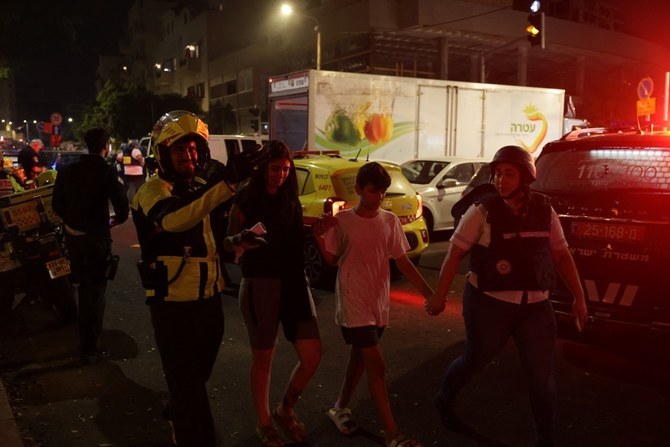TEL AVIV: An explosion in Tel Aviv early Friday left one person dead, an Israeli emergency services spokesperson said, with the army saying a falling “aerial target” caused the blast.
Emergency services said the explosion took place around 03:15 am (0015 GMT) in a building in the center of the city. Two people were lightly injured, Zaki Heller of the Magen David Adom medical service said.
An earlier police report had said seven people were injured, but they were mainly in a state of shock, Heller added.
The army said an initial inquiry showed that the explosion was “caused by the falling of an aerial target.”
“No sirens were activated,” it said in a statement, adding that the air force had “increased its air patrols in order to protect Israeli airspace.”
A resident of central Tel Aviv said he had been woken by a loud explosion.
“Everything shook,” he said.
Police found a body bearing injuries caused by shrapnel in the building, which is located on the corner of Ben-Yehuda Avenue and Shalom-Aleichem Street, not far from an annex of the US Embassy in Israel, spokesperson Dean Elsdunne said.
“It may have been an aerial explosion... We were very lucky,” said Peretz Amar, a Tel Aviv police commander at the scene, adding an investigation was “ongoing.”
“The police, along with emergency and rescue forces, discovered a man in his 50s in a nearby building who was found dead in his apartment, with shrapnel wounds on his body,” a police statement said.
Another 10 people with minor injuries were taken for medical treatment, it said.
Police and bomb disposal units were deployed to the scene and conducted searches for suspicious objects and additional threats, the statement added.
Residents were urged to “respect safety instructions and not to approach or touch debris or shrapnel that may contain explosives,” it said.























